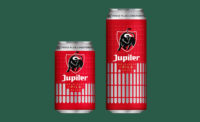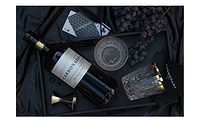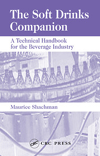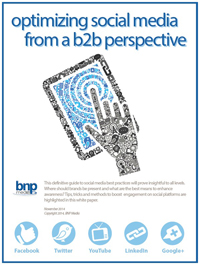No Longer A Luxury
Sarah Theodore
Editor
So far this year, 523 beverage
products have
been introduced in the
United States with an
“upscale” product claim,
according to Datamonitor’s
Productscan Online. That’s a
third more products carrying
that claim than were introduced
a year ago. It’s a trend
that is hard to ignore, and it
has industry observers examining
the psychology of
Americans who are feeling
the pinch of rising costs in
some areas of their lives,
while they continue to trade
up to more expensive food
and beverage products.
In this month’s cover feature,
Mesa Distributing Chief Executive Officer
Nick Gagliardi discusses the importance of
import, craft and new upscale domestic beers to
his company’s success in the San Diego market.
“What’s exciting about these new items is that
the consumers are trading up. They are not just
another ‘me too’ product,” he told Beverage
Industry Managing Editor Elizabeth Fuhrman.
ACNielsen also recently looked at the upscale
beer market for its Consumer Insight publication,
and says imported beers not only have increased
their total share of market from 12 to 13.4 percent
during the past two years, but have increased
prices more than 5 percent during that time.
ACNielsen examined the trend as part of a larger
consumer packaged goods phenomenon, pertaining
to everything from Starbucks lattes to iPods.
It attributes this behavior to “aspirational shopping,”
or consumers gaining personal validation
by purchasing high-end merchandise.
The report uses that
old phrase “affordable luxuries”
to describe these product
trade-ups.
But when it comes to food
and beverages, the high-end
trend might have become
more deeply ingrained in our
culture than a quick moodboosting
shopping fix. In a
new book titled “The United
States of Arugula: How We
Became a Gourmet Nation,”
Vanity Fair writer David
Kamp discusses the post-
World War II history of food
in the United States, which
took us, in the publisher’s
words, “from the overcooked
vegetables and scary gelatin salads of yore to the
current heyday of free-range chickens, extra virgin
olive oil, ‘Iron Chef,’ Whole Foods, Starbucks
and that breed of human known as the ‘foodie.’”
I can’t plug the book — it won’t be on
shelves until September — but I think it’s safe
to say that its very publication shows how
widespread the gentrification of our product
preferences has become. Whether buying
upscale is an affordable luxury or simply the
new American standard, beverage brand owners
and distributors will want to be sure they
are part of the trend. ACNielsen suggests marketing,
merchandising and communications
strategies that appeal to image-conscious consumers,
and refreshing or expanding portfolios
through new entries, acquisitions or even major
re-branding. Luxury, it seems, has become the
new necessity.
SNEAK PEEK
SEPTEMBER
Category Focus — Bottled water
Beverage R&D — Fortification solutions
Packaging — Coding technology
Marketing — Ethnic marketing
InterBev on-floor
Category Focus — Bottled water
Beverage R&D — Fortification solutions
Packaging — Coding technology
Marketing — Ethnic marketing
InterBev on-floor
OCTOBER
Special Report — Retail initiatives
Category Focus — Private label
Beverage R&D — Sensory ingredients
Packaging — Environmentally friendly options
Special Report — Retail initiatives
Category Focus — Private label
Beverage R&D — Sensory ingredients
Packaging — Environmentally friendly options






